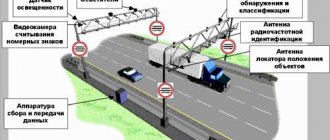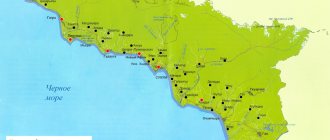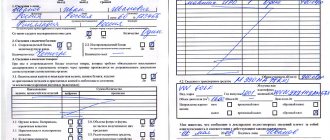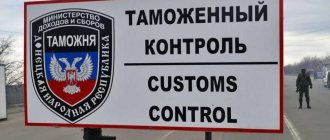- 5.0
Voted 2 times
5,002 votes
Write a review
In the era of developed socialism and the blind Iron Curtain, when only diplomats and popular artists could go abroad, Latvia was considered the only “open window”.
Many Soviet citizens flocked there to see the world and bring home some goods that were not available in our trading network. These were unique things that absorbed the spirit of originality. And they proudly said about everything that they brought from there: “... from Latvia.”
Today this country, like any other, is accessible to everyone. But it is important to know customs rules in order not to get into trouble, since violation may result in administrative and even criminal liability.
Crossing the Latvian border is no different from the same procedure in another EU state. Having familiarized yourself with the customs rules of Latvia, it will be easier to navigate the airport and determine which corridor to choose.
If the baggage does not require declaration and payment of tax, then you need to follow the “green” corridor, in other cases - along the “red”. If you are unsure, it is better to choose “red” and then ask the customs officers where to go.
Restrictions for transporting goods
The rules for transportation by plane and by car by land in 2021 are different.
If the trip is carried out by land (by train or car) or by water (by ship), then you can transport:
- 40 cigarettes;
- 20 cigarillos (weighing no more than 3 grams);
- 10 cigars;
- 50 grams of own tobacco.
You can only select one from the above items.
Alcohol can also be carried in small quantities. You can only select one from the following items:
- 1 liter of drink in which the alcohol level is more than 22%;
- ethyl alcohol, which contains more than 80% alcohol;
- 2 liters of wine, the degree of which does not exceed 22%;
- 4 liters of still wine;
- 16 liters of beer.
Insurance policy and medical assistance
Every tourist is required to have a medical insurance policy. The policy includes the names of tourists and the duration of their stay in Latvia. The insurance policy contains information in Russian about the rules for insuring medical expenses. Be sure to read the terms and conditions of the insurance contract before traveling. During your stay abroad, we recommend that you keep your insurance policy with you at all times. We remind you that diseases associated with pregnancy and the consequences of alcohol or drug intoxication are not insured events. If you need medical care, you should immediately call the representative office of your insurance company at the phone number specified in the policy and provide the following information: last name, first name, date of birth, insurance policy number. A representative of the medical service company will find out what happened, where you are, explain how to behave in this situation and what compensation you can expect, and, if necessary, refer you to a doctor. In this case, the visit to the doctor and subsequent treatment are paid for by the insurance company. In some cases, it may be necessary to pay the costs of treatment on site (only by agreement with the insurance company). In such a situation, the expenses incurred by the tourist due to an insured event are returned by the Moscow representative office of the insurance company after the trip (subject to the availability of supporting documents). If a tourist consults a doctor on his own, then he must be prepared to pay in full for the services on the spot and not claim full compensation for the expenses incurred by the insurance company.
What can you bring to Latvia?
When going through customs, you can have a canister of fuel with you, but not more than 10 liters. In addition, you can completely fill the tank before driving.
You can also carry a variety of non-alcoholic drinks.
When traveling by plane, you can have with you (you must select one of the following items):
- 200 cigarettes;
- 100 cigarillos;
- 250 grams of tobacco for smoking.
You can transport goods within these limits without paying tax. However, if the traveler is under 18 years old, he will have to pay a government fee.
What is prohibited to import into Latvia
Many food products are strictly prohibited from being transported to Latvia. Legislation protects citizens from “imported” infections. All products imported from outside the EU are carefully checked for the presence of harmful substances.
First of all, the following meat products are prohibited:
- salo;
- meat of all kinds;
- animal fats;
- sausage and other products;
- canned meat of any kind;
- meat casseroles;
- sauces and soups even with a small content of meat and meat products.
In addition to meat, you cannot carry dairy products with you:
- yoghurts;
- various cheeses;
- sour cream;
- condensed milk;
- ice cream.
If animal food contains meat or milk, then it cannot be transported either.
The listed products cannot be imported into the country or sent by mail or other delivery services.
In addition, you cannot import:
- antiques;
- museum exhibits and works of art without specific permits from the authorities of the country of export.
Traveling around the country
Currency
The monetary unit is the euro. National currency: euro (1 euro = 100 euro cents). Banking hours: Monday to Friday from 9.00 to 16.00, on Saturdays from 9.00 to 12.30.
In Latvia, money can be exchanged at banks and exchange offices. Some banks offer the opportunity to exchange money at multi-currency ATMs.
Currency exchange rates can vary significantly from location to location, so it is a good idea to compare rates in different locations before exchanging.
Latvia has a network of accessible ATMs, but if you're traveling outside of the big cities, it's best to take cash with you. ATMs accept credit and debit cards (Visa, MasterCard, Maestro and others).
You can pay with a credit or debit card at most restaurants, stores, banks, gas stations and hotels. Some taxis also accept bank cards.
In public transport, you can buy a ticket from the driver for money. Or pay with a card in Riga at one of the ticket machines that are located at public transport stops in many places in the city.
Electricity
220 V, 50 Hz, euro sockets.
The shops
On weekdays they are open from 10:00 to 19:00-20.00, on Saturdays from 10:00 to 16:00. Large supermarkets and shopping centers are from 08:00 to 22:00, there are grocery stores open around the clock.
Churches
Lutheran.
Official holidays
January 1 – New Year.
April-May – Easter.
May 1 – Spring Festival, Day of convocation of the Constitutional Assembly of Latvia.
The 1st Sunday in May is Mother's Day.
May 4 is the Day of the Declaration of Independence of Latvia.
May 8 – Day of Remembrance for the Victims of the Second World War.
June 14 is the Day of Remembrance for Victims of Communist Terror.
June 23-24 - Jan's Day, Ligo holiday (summer solstice day).
July 4 is the Day of Remembrance of the Jewish Genocide.
August 11 is the Day of Remembrance of Latvian Freedom Fighters.
September 22 – Baltic Unity Day.
November 11 – Lachplesis Day (Day of Remembrance of Fallen Heroes).
November 18 – Day of the Proclamation of the Republic of Latvia (1918).
December 25-26 – Christmas and Holidays.
Telephone
Calls to Russia: 007 + area code + subscriber number. You can buy prepaid mobile phone cards at kiosks, gas stations, post offices and supermarkets.
Transport
When traveling around Latvia, all the most beautiful places can be conveniently reached by regional transport - by train or bus. Tickets can be purchased online, at ticket offices at railway and bus stations, as well as on the bus directly from the driver.
Weather and climate
Latvia is located in a temperate climate zone, so here you can enjoy all four seasons: real winter with frost and snow, spring floods, warm summers and picturesque autumn. According to long-term observations by weather forecasters, the average annual temperature in Latvia is +5.9°C. The warmest month is July, when the average air temperature reaches +17°C, and the average maximum is +21.5°C. The coldest months are January and February, the average temperature in these months is about -4.6°C, and the average minimum is -7.7°C.
The average annual precipitation is about 670 mm, the richest months for precipitation are the summer months of July and August - about 78 mm, and the lowest precipitation is in February and March.
Kitchen
The formation of Latvian cuisine took place over many centuries. Therefore, in dishes considered traditionally Latvian, many features of Lithuanian, Estonian, Belarusian, German and Scandinavian national cuisines can be discerned. Most of them are simple to prepare and satisfying. The main products from which Latvians prepare their food are rye and wheat flour, cereals, potatoes, dairy products, various types of legumes and vegetables. The country's location directly on the Baltic coast has led to the widespread consumption of fish and seafood by its residents. On the Baltic Sea coast there are a large number of fish farms where you can enjoy smoked flounder, eel, cod and lamprey.
What to try in Latvia:
- Smoked lamprey is a unique but delicious delicacy, which is served as a cold appetizer in many national restaurants.
- Cottage cheese with herring and potatoes.
- Bread soup probably ranks first among Latvian desserts. It is made from ground rye bread, which is mixed with sugar, cinnamon, raisins, dried apricots and other dried fruits. This mass is served in bowls and generously flavored with whipped cream.
- Black balsam, poured into authentic clay jugs, has a unique bitter taste and rich aroma and is simply perfect for consumption, both in pure form and in company with hot drinks, especially coffee.
- Piparkukas – pepper cookies. The cookies traditionally contain black or allspice, cloves, ginger, cardamom and cinnamon. Fragrant and spicy, piparkukas can be found in any store in the country in the form of cute round suns or shaped cookies in the shape of stars, hearts, Christmas trees and people.
- Latvian cheese and various fish dishes.
Tips
There are no instructions on this matter. However, if you liked the service, the food and drink offered, then, according to tradition, it is customary to leave a tip to the service staff in the amount of 5-10% of the bill amount.
What products are allowed to be imported into Latvia
There are no restrictions on the import of 2 kg of the following products of animal origin:
- honey;
- bee products;
- eggs;
- oysters and snails (live);
- powdered milk for baby's nutrition;
- baby food;
- pet food (meat and milk free).
Fish products can be imported weighing up to 20 kg:
- fresh fish, washed and without entrails;
- dried fish, thermally processed;
- salted, smoked, canned fish.
This also applies to products made from crabs, shrimp, and lobsters.
The exception is sturgeon caviar (its maximum quantity is 125 grams).
The following products can be imported up to 10 kg:
- bakery and confectionery products (provided there is no meat in the filling);
- chocolate;
- pasta;
- dry broth and seasonings (even meat extract is allowed);
- oils containing fish;
- food additives in dry form;
- other products containing no more than 50% eggs and fish products.
If the violation occurs for the first time, the goods will be destroyed and the tourist will bear administrative liability. However, if a violation is recorded again, a fine will be imposed on the citizen.
Personal safety
In order for you to remember your trip only from the most pleasant side, we advise you to follow the following rules:
- Do not leave valuables unattended. Including in the hotel, restaurant and bus. You cannot take up space by placing a bag on a table or chair, putting your phone, room keys, etc.
- Valuables should only be stored in the safe in the room, and if not available, in the safe at the reception (even for a small fee). The hotel is not responsible for things left in the room. An exception is if valuables are left in the safe if there are obvious signs of a break-in (within the limits of hotel insurance).
- You cannot leave things on the seat of a bus or car, so as not to provoke robbers. It is necessary to hide everything in the luggage compartment.
- Be especially careful with documents: keep them either in a safe or with you. Don't carry your passport with you unless absolutely necessary; a photocopy is enough.
- Beware of pickpockets, especially in crowded places and on public transport.
- Do not buy obviously counterfeit goods from street vendors.
- If you lose your passport, you must personally contact the Consulate for a return certificate. You will need copies of documents proving your Russian citizenship, photographs, and in some cases, evidence from at least two Russian citizens who know you personally. Therefore, treat passports with special attention, because the procedure for obtaining a certificate is not quick and is very expensive.
- Do not leave your luggage unattended in crowded places (airports, public transport stops, trains, buses, stations, stadiums, shops, etc.) In accordance with local laws, suitcases, bags, packages left unattended may be confiscated for inspection with possible further destruction, and a significant fine may be imposed on the owners of the luggage.
Declaration of cash
For more than 10 years now, it has been impossible to transport or export cash in the amount of 10 thousand euros or more from Latvia without a declaration. This rule applies to all EU countries. You must also declare funds when you are carrying money other than your own.
Cash declaration is not required if the border of another Schengen country is crossed. This cannot be avoided if the trip is to the Russian Federation.
Definition of cash
In addition to money, cash includes:
- local currency notes and coins;
- receipts, bills, payment orders;
- blank checks, bills and other documents that do not indicate who exactly should receive a certain amount.
Declaration process
Airport employees issue a declaration form. It can be filled out in one of three languages: Latvian, Russian, English. The document contains the following information:
- personal data (if you are carrying money other than your own, you must indicate the full name of the owner of the funds);
- who will be the recipient;
- the amount of cash and in what form it is transported;
- where did the funds come from;
- how you plan to spend it;
- from where and where the trip is made;
- what transport the declarant uses to leave the country;
- customs crossing point.
Punishment for transporting undeclared funds
Funds will be considered undeclared if the information provided is false or the data is incomplete. According to the article of the administrative code, a fine of 200 lats (about 300 euros) is charged for these violations.
Each case is considered privately. For some violations, criminal liability cannot be avoided. If a tourist ignores the declaration process more than once a year, he may be imprisoned for 2 years or fined 100 monthly wages.
If the money is acquired by criminal means, the offender can be imprisoned for 5 years, and the fine will be equal to 200 monthly salaries.
Crossing the border and meeting with a company representative at the airport
When going through passport control, you must present a passport with a visa. In addition, border guards may also ask you to present an airline ticket, voucher, or cash (cash, credit card).
Receipt of baggage
In the arrivals hall, read on the monitors in which section baggage from your flight will be handed over. As a rule, luggage appears quite quickly, luggage trolleys at airports are free, or a deposit is required for them. If your luggage has not arrived, you should contact the lost&found service to issue a search receipt, in which you must indicate the address to which the delayed luggage should be delivered.
Meeting with a company representative
After passing passport and customs control, proceed to the arrivals hall, where you need to find a representative of the PAC GROUP company or the host company with the sign indicated in your program. For individual tours - a sign with the tourist’s name.
If for some reason you cannot find the sign and, accordingly, the greeter, you should contact the company representative at the number indicated at the end of the program for group tours and in the transfer voucher for individual tours.
The waiting time at the airport is 1 hour after the scheduled landing time. In case of a flight delay or any questions regarding the provision of the service, you must call the phone number indicated in the voucher or the PAC24 emergency support service. If tourists independently decide to leave the transfer starting point and do not use the service, the cost is not refunded.
For individual tourists who have not ordered an escorted transfer, the services of a representative at the airport are not provided.
We recommend that you immediately copy on your phone the contact details of your escort on the route or a PAC GROUP representative at the resort.
In case of unforeseen circumstances (problems with border or customs services, lost luggage, you cannot find a greeter), you should contact the representative by phone at the number indicated at the end of the program or in the information sheet that is in your set of documents, or to the 24-hour service PAC24 support.
Tax Free
Russians making purchases in Latvia can count on a VAT refund when leaving the country. Just over 25 euros is the minimum tax refund amount.
There are more than 1,000 retail outlets in Latvia marked with the Tax Free sign.
To participate in the program, you must provide a passport upon purchase and ask for a special receipt. It is better not to touch the packaging of the goods until you pass customs control.
The money can be returned either in cash or to a bank account or at points of issue in the Russian Federation. Goods must be exported within three months after purchase, and receipts for the issuance of VAT funds are valid for six months.
Before the trip
We recommend that you make photocopies of your passports, including the visa page, before departure. Due to the increased load on airports and transport problems, we advise you to arrive for check-in at least three hours before departure. To cross the border, you must have the following documents with you: passport, printout of an electronic air ticket, insurance, hotel voucher. If minor children (under 18 years of age) go on a trip to Latvia without parents or with one of the parents, then they must have a notarized permission from the parents, issued in the name of the person accompanying the child (required at passport control when leaving Russia) . If a child is traveling with one of the parents, we strongly recommend that you have similar permission from the other parent, as well as an original or notarized copy of the birth certificate.
We remind you that the tour operator is not responsible if the Border Control Service does not release children abroad due to lack of permission or if the tourist’s passport is on the stop list at the request of the Bailiff Service.
Currently, the following procedure has been established for the export of cash foreign currency from the Russian Federation:
- export of an amount not exceeding 10,000 US dollars (approximately 7,000 euros) - no need to submit a customs declaration to the customs authorities;
- export of currency over 10,000 US dollars - a written customs declaration indicating the amount of exported currency (in 2 copies) is required to be provided to the customs authorities.
PAC GROUP is not a carrier. We order and buy tickets from a number of companies. When issuing a ticket, an agreement is concluded between the carrier and the passenger whose name is indicated on the ticket. Flight delays (due to weather conditions, technical reasons, strikes and force majeure) are rare, however, sometimes they can lead to a disruption or change in the program of stay in Latvia. PAC GROUP is not responsible for such delays. We are also not responsible for the safety of luggage during air travel. If you are flying on tickets you purchased yourself, be sure to notify PAC24 about the flight delay.
What can you buy in Riga
Riga is a city of traditions. Therefore, both “then” and now, you can buy here:
- Riga balsam (in addition to the classic black, there are three more types that appeared in 2021: currant, creamy, balsam with the addition of rum);
- unique fairytale houses from Riga, handmade candlesticks;
- amber products;
- caramel imitating pieces of amber;
- sprats;
- Riga perfumes from the Dzintars factory (in addition to the traditional classic scents available in the retail chain, you can order perfumes with an exclusive scent directly from the factory laboratory, but this will cost from 20 to 40 thousand euros);
- eco-friendly and exclusive handmade shoes - super-light, bright, youthful felt boots in fashionable styles that can be worn not only in winter and which are treated with special substances to prevent getting wet and slipping;
- hand-knitted items or knitting kit;
- an exclusive wrinkle-resistant hat (everyday or carnival), made using unique technology;
- Latvian chocolate, bizarre in shape and composition.
Older people associate Riga with nostalgia. Therefore, everything purchased there will leave vivid impressions and long-lasting memories. And please remember the law!
Share:
Topics: Border, Latvia, customs rules











